#patiño
Explore tagged Tumblr posts
Text
“He ido perdiendo la fe en la negociación con el ELN”: confesión de Otty Patiño ante ganaderos del país
Para el cierre del año, como es tradición, gran parte de los gremios de la producción realizan sus congresos y asambleas anuales. Una de ellas fue la de Fedegán, que reúne a los ganaderos del país, pero que tenía una particularidad: definir el futuro de su presidente, José Félix Lafaurie, en la mesa de negociación con el ELN, que finalmente fue continuará como integrante del equipo negociador del…
0 notes
Text










Samsara (2023) | dir. Lois Patiño
78 notes
·
View notes
Text
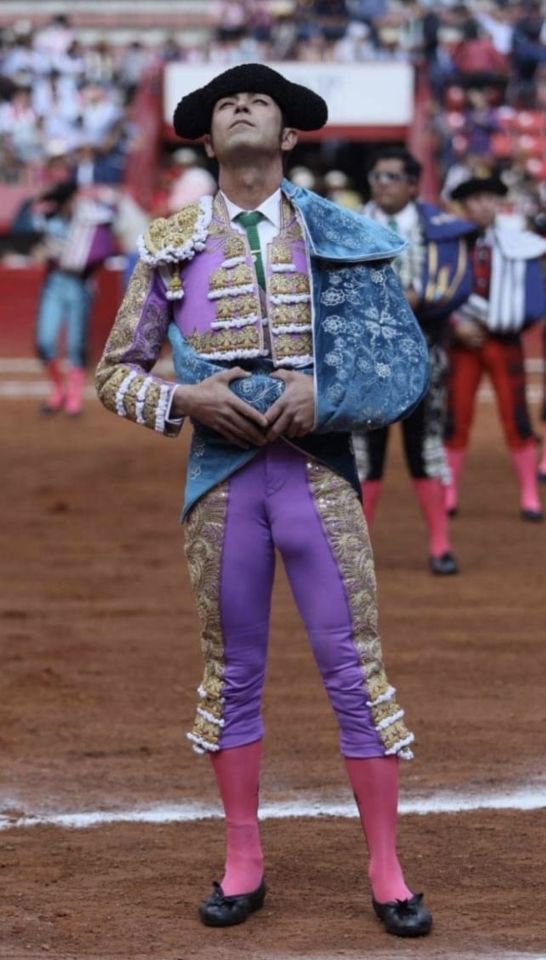
Nacho González Patiño
29 notes
·
View notes
Text

el husbando prohibido

#Bob patiño#los Simpson#the simpsons#sideshow bob#doodle#my art#Banda lo admito me gustan los weyes todos loquitos y apestosos#@edna aran y Laverne también 😔🤙
224 notes
·
View notes
Text
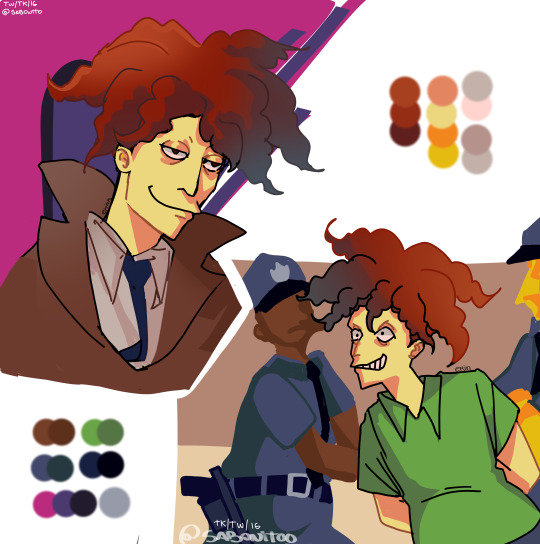
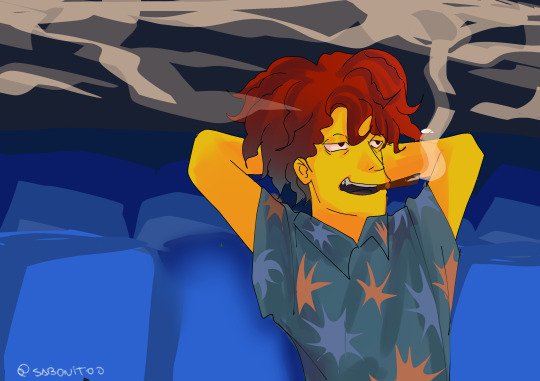
Roberto Sabaleta
14 notes
·
View notes
Text

Lois Patiño, {2010} Paisaje-Distancia: Casa (Distance-Landscape: House)
#film#Lois Patiño#Paisaje-Distancia: Casa#Paisaje-Distancia#distance-landscape: house#distance-landscape#lois patino#2010#short film#landscapes#houses#mountains#colour#2010s#no people#male filmmakers#spain
4 notes
·
View notes
Text




Samsara, 2023, Lois Patiño
11 notes
·
View notes
Text
Okey, ya hace unos días me termine de ver Betty la fea, novelon. 10/10.
Y tomé la decisión de ir con 'Ecomoda'...— Tipo, no esta nada mal, tiene unas interacciones curiosas. Pero no puedo negar que me esta aburriendo bastante, aún así tal vez la siga viendo por compromiso, aclaró. Volver a ver a los personajes es divertidisimo, pero siento que aquí solo se centraron más en la comedia, en la caricaturización de los personajes, porque no... de momento no siento un desarrollo de ellos. No sé, por donde empezar, creo que con la idea que me ronda la cabeza en este momento.
— Honestamente, el cuartel. En la primera entrega. No me parecía molesto, de hecho me divertian mucho, eso sí tenian sus momentos pero aún tenían esa parte humana. Aquí son totalmente insoportables. Aquí va de la mano con la relación de Aura María y Freddy. Desde el inicio me parecieron una pareja okey, luego fue "Ayy... que toxicos...", después fue bonito y volvimos a la toxicidad. Por lo que veo estos no llevarian mucho tiempo de noviazgo, de hecho lo de la boda se me hizo apresurado, también se me hizo raro que sea Freddy el que ponga resistencia a ello. Sin embargo, entiendo el por qué. Simplemente quiere ser alguien economicante sostenible, en eso lo apoyo. No apoyo, esa coquetería con otras mujeres sabiendo que el esta en una relación. Ahí si apoyo a Aura. Pero es que ella tampoco es una santa, y esto me recuerda a la pelicula de "Son como niños 2", una cosa es mirar, otra ya es ponerse en el acto. Y Freddy es muy conocido por su galantería con todas las personas solo para causar buena impresión, el puede mirar a muchas mujeres pero siempre lo vi con los pies en la tierra. Igual, Aura María tampoco ha superado esa fase de ir en fiesta en fiesta picandole el ojo a cualquiera, especialmente hablando con el gringo, es que me molesta de su personaje que, solo ella pueda reclamarle pero él a ella no. Y las del cuartel también con su alcahuetería, solo porque es su amiga entonces no le decimos nada, ella siempre tiene razón y Freddy no. Tipo, es lindo verlas protegerlas, pero es que tampoco... lo que se le exige al tipo también se le debería exigir a ella. Esto lo digo, porque aunque saben que ambos estan juntos, le alaban esa coqueteria con el gringo, pero ahí Freddy medio voltea a mirar a un ser vivo y le recuerdan de todo, eso me molestó bastante.
— Punto número dos, Betty. Ella me parece bien, entiendo mucho su personaje y me gusta que se haya quedado como presidente. Sin embargo, a veces la siento insoportable. No solo por lo celosa, porque con un hombre como Armando, hasta la entiendo. Incluso no creo que llegue al nivel de Marcela. Pero es que la hiceron tan rencorosa que si no estas de acuerdo con ella, es porque estás en su contra. Y no digo que es que tenga que perdonar a Mario o a todo el mundo, porque entiendo el dolor. Pero, no sé- tal vez, habían mejores formas de escribirla- tal vez la forma que lo mostraron no fue la correcta, ella dice que él se burló, que él leyo su diario, y todas las cosas que él dijo sobre ella. Pero, él no actuó solo. Esa culpa va entre ambos amigos. Ahora. No me malentiendan, entiendo que Armando ya se disculpo, pero hacer ver que todo recayó en Mario, no sé- porque sabemos que eso no paso así. La problematica tal vez pudo haber surgido porque Mario nunca pidió perdón, o algo similar a eso, pero como ya dije, no hacerlo ver como que todo salio de su mente. ¿Me entienden? Es que es un tema complejo.
— También quiero mencionar que si, Armando, cambió. No entiendo porque el resto de personajes no podrían. Como dije, esta secuela hubiera sido perfecta para cerrar ciclos, renovar lazos, etc. Y si me he spoileado algo, y no sé si vaya a suceder. Al menos no con personajes como, Daniel, Marcela... ya continuaré viendo si Beatriz perdona a Mario. Y mencioné a Daniel, porque... siento que en la primera no lo aprovecharon mucho, y hubiera sido lindo ver un arco de redención o conocer más de los Valencia.
Y, por último lo que SÍ me esta gustando, de hecho es bastante corto, cosas insignificantes, pero que lindo que las hayan colocado.
— En la primera entrega, Wilson me dio vibes de ser de la comunidad LGBT+, y aquí si que hacen varias insinuaciones 😉. Igualmente, su personaje es secundario así que no sé si saldrá más, interactuar con otros personajes y dar este tipo de guiños. Pero me parece que sería una linda continuación. Que por cierto, aquí hablo de Hugo Lombardi. ¿Es casualidad que me salgan con estas ideas, justo cuando el Chesito Sumercé, dejó a Hugo? Sé que es una idea muy, flu-flu. Pero piénselo. Hugo es un personaje que necesita algo de humildad, de hecho todos en Ecomoda necesitan de eso (y algo de dignidad también), Wilson necesita de alguien con seguridad. No sé- yo pongo la carta sobre la mesa.
— De hecho, Mario también tiene estas interacciones con Armando, muchisimas más que en la primera temporada, sin embargo, no sé, es que el personaje de Mario Calderón lo hace porque sabe que a Armando no le gusta eso, así que es más como su forma de molestar, no se descarta la posiblidad del ArMario, pero es evidente que Armando ama a Betty. So- 🙅♀️. (Para mí. Eso si, si Betty sigue así de insoportable, pues que se vaya con él, jajaja.)
— Otro dato curioso, en Ecomoda. Mariana y Sandra viven juntas. ¿Por qué? No sé. Pero baia, baia, baia 👀.
— Según me spoileé, en la parte con Amazon Prime. En Ecomoda se explica porque Camila Mendoza es tan mimada. Sé que su director dijo que no tomaron en cuenta esta secuela, pero siento que tiene un par de similitudes con ella. La razón de mi comentario, es porque Armando la mima mucho, cada mes le celebran su cumple-mes, es normal que salga super mimada, especialmente amando tanto a su papá, también, esto no lo mencionan pero es evidente, que su nombre se debe a su hermana. ¡Que por cierto! ¡Aún no sabemos nada de ella! ¿Quién esta mas olvidado, el perrito de Armando en el depa, o su hermana? xdxd.
No entiendo porque ningun escritor, toma la idea de presentarla al público. Porque, igual, esta novela no va a dar para tanto. Solo si se repiten pratones, o si se podría si siguen haciendo estos 'Slice of life'. Si quieren drama, problemas, ella seria un buen personaje. Es un personaje en blanco, listo para ser escrito a como sea. A diferencia de los que ya conocemos, que ya tienen una personalidad definida, lo dificil con ellos es escribir el futuro de como sus acciones le afectan la vida, sin que suene brusco y parezca que se salen de personaje.
Y si, de momento, eso es lo que me esta pareciendo Ecomoda. Tenia que sacarmelo del corazoncito. ¡Y! ¡Según Wikipedia Sofia Vergara va a salir! Entonces, si... tengo que continuar para verla. Igual ya estoy en la mitad. Y bueno, realmente espero, al menos ver algo distinto de los personajes al final, no sé... Un cuartel menos alcahueta, una relacion bonita entre freddy y aura maria, un mario menos mujeriego, y más apenado de sus decisiones para terminar ese ciclo con beatriz, incluso un final para Gutierrez, ese hombre nunca va a cambiar, o incluso una transformacion para Nicolás, sigo sin entender porque Betty no le ayuda a SU amigo, a darle más seguridad, etc. Al menos un final apropiado, eso es lo que por lo menos pido. O sea, no sé por qué, pero es como si 'Yo soy Betty, la fea' estuviera condenando a nunca tener una buena secuela.
Ya, bye-bye.
Sorry, un poquito largo...
#yo soy betty la fea#ecomoda#beatriz pinzón solano#armando mendoza#camila mendoza#mario calderon#daniel valencia#wilson sastoque#hugo lombardi#nicolas mora#sandra patiño#mariana valdez
2 notes
·
View notes
Text
My Peak TV Journey *Betty la Fea La Historia Continua*
I need to say upfront, that I was really excited about this series, and I remain mostly satisfied. I look forward to the second season continuing (and wrapping up?) this story. I also finished watching the edited-for-Peacock version of the original. I will say that the sequel is for people like me, people who think the original loses steam after the return from Cartagena. While the original series shows Armando in touch with his emotions, it doesn’t show him having any idea how to act on them in a healthy manner. Despite this he and Betty accept that they’re still in love, generally better together so they get together without resolving Betty’s deep trust issues, or how Armando still needs to learn anger management and better communication skills. It’s amazing they lasted as long as they did.
I don’t want to fight anyone over the quality of the series, but there are some things I have to defend. Namely the structural differences between the sequel and original. By structural, I mean mostly pacing, cast size, and how information is revealed. The differences between setting up a story that will most likely run through through hundreds of episodes more or less uninterrupted for over a year vs something that the two episode once a week, for a total of ten where continuation will be indefinite is essentially a change of medium. The techniques and rules for storytelling change. The now de-cannonized sequel spinoff Ecomoda is criticized for being too much of a sitcom when figuring out how to deal with similar structural change. La Hisotria Continua is more like the original telenovela in tone and plot points, but those have to unfold differently than the original. (Also in being more like the original, it’s going to torture its main characters anew. If you can’t accept it, don’t watch and don’t comment.) In the original an early episode is dedicated to Betty and Nicholas reading a magazine covering an event Ecomoda hosted, with flashbacks to said event. Through this we really get to know many of the major characters and what they are trying to do. This season comes with the assumption that we are familiar with most of the characters, but we don’t really know what they’ve been up to, and most importantly, we don’t know how they relate to the new characters. Crucially, it isn’t laid out so we know what kind of danger Betty is walking into this time. In the original the intrigue was “what will happen?” Here it’s more “what has happened?” This comes with mixed results. The first episode especially felt needlessly confusing. And even by the end of the season, there were things, like how and why Majo got involved with Ecomoda, that I wish had been clarified already. However, there was a moment in the second episode made it more clear that they knew what they were doing. This starts with Betty telling Bertha and Sandra that she was not a good president of Ecomoda because she only made the rich richer. I took this as a sign that this was taking on the extreme classism in the original, how it was mostly treated as “that’s the way the world works” kind of way.
The series opens at Don Roberto’s (Armando’s father) funeral. Armando’s relationship with his father was always fucked up though the original series seemed to lose interest in the more negative aspects of his character as it went on. One of the messed up things about their relationship was how accommodating Roberto was to Daniel, son of his former business associates and Armando’s rival. The not too subtle subtext is that Roberto thought of Daniel as a more serious minded person for business and wished Armando was more like him, while also showing little to know interest in anything else about who Armando was as a person. He didn’t have much interest in who Daniel was as a person either. This all business approach helped him appear to be out of the fray, when he really very much was in it. In the new series, through a video of his will, Roberto sets up a plan for Ecomoda that manipulates a reluctant Betty back into the office of the presidency while telling Armando how he once again failed as president. No wonder after Roberto’s death Armando is haunted by visions of Roberto saying Armando should have spent more time in prison, and that he doesn’t deserve someone as wonderful as Betty. The latter statement is ironic, given that Roberto treated Betty pretty coldly. Everyone ignores the fact that in the original series when they first met he refused to shake her hand. Roberto definitely deserves some of the blame for how Marcela became a lingering presence over Betty and Armando’s marriage, and Betty never feeling entirely welcome in the Mendoza family. And of course as we later learn, her fired Betty to appease Marcela, when that was bad for everyone.
Looking back after the season, I think Marcela might have been the character who most benefited from the changes in structure. The story was put into motion by her worst qualities, her anger, lack of curiosity, the ways she isolates herself. But she didn’t have enough air time to for these traits to become too tiresome and have us give up on her. And she is left in a position where she has to make some life changing decisions. We learn early on Marcela blames Betty for Daniel’s downfall. Betty was aware that something was wrong with the company financially, alerted the police and the investigation led to Daniel being arrested for money laundering and then being murdered in prison. But, for the plot of this series, the real issue is how aggressively Marcela only sees what she wants to see. Marcela seems to have natural blinders towards so much in life. She wants vengeance against Betty and Armando by forcing them out of Ecomoda and then taking over with Ignacio. But she is not paying attention to what Ignacio is doing. When she learns if a lot of it in the last episodes she’s appalled. Her relationship with Ignacio is the inverse of how she treated Armando as a boyfriend. But it is reminiscent of how she never had interest in the running of Ecomoda, never checked in on Armando and Mario’s business schemes and ignored how her brother sexually harassed her best friend. So her not checking in more on Nacho feels in character, if a part of her character that’s always been frustrating. After the reveal that Ignacio is her half brother, instead of her nephew as she believed, I began to wonder if it was a revelation to force her to change this aspect of her character? Does knowing her father had a second family make her aware that this isn’t just keeping her head high out of the muck? (Or whatever she says to herself.) She’s ignoring things that matter. It also made me think are we supposed to reassess her constant monitoring of Armando during their relationship as some kind of subconscious way of making up of all the ways she ignored the poor behavior of the men in her immediate family? For most of the season the relationship between Marcela and Nacho was treated as a mystery, much of the office assuming that he was her boyfriend, while fans knew he was a secret member of the Valencia family and having the full answer include how much Marcela doesn’t look at or explore things involving her familys interesting. I hope the next season follows up on this. Some of the follow up will involve Pascual, Nacho’s secret parter and Marcela’s new love interest. I’m not sure Pascual will actually be good for Marcela in the long run. She needs to have her single minded desire to hurt Betty and Armando broken by other desires. And I don’t think she’s thought of wanting anything else for a while. But he gives mixed messages all the time. As a secret patter who express interest in becoming part of the high society fashion world. But in his first scene he says the line “Para mi papero y papito son los mismos nombres.” Indicating he’s not that interested in changing his identity. He has a couple of ugly divorces and says he wants to be fawned over by models, but he also is instantly smitten with Marcela and pursues her with the most blunt and crass language I can imagine. He also has as little interest in remaking Ecomoda’s image as he does his own image, to Nacho’s presumed chagrin.
Marcela also had surprisingly little interaction Patricia, which did affect a lot of the show. It’s an interesting way showing of how people have changed and stayed the same. During the first episode I hated Bertha and Sandra’s jokes about Patricia’s husband. They were gross and agist. (Later meeting him at the quinceñera flash back made Patricia’s relationship seem like elder abuse. But, I kind of like that Patricia’s in a relationship that she wants to be known, but doesn’t want to bring attention to. It’s a change of pace from the original where she was single, desperate and frequently saying how she could have a boyfriend whenever she wanted. The change seems like an appropriate response to Daniel regularly offering to pimp her out to his friends. I also like that she was promoted to Gutierrez’s position as a way to show everything being different but similar. Patricia was always about bossing around el cuartel. Gutierrez also seemed to think of his job as chiding people back into looking busy whenever. The change in position a good reason for Bertha and Sandra’s renewed hatred for Patricia a fits with the ways Gutierrez was awful. Bertha’s obsession with “chisme” might actually make her good at the job, She can make people feel seen and heard and communicate between workers and executives. People could feel more motivated to work when they understand more of what is going on in the company. But it doesn’t fit with the intense classism that rules Ecomoda. It would be a view of the position completely alien to Gutierrez.
As I was saying earlier, whatever is going on with Majo, Mario and Armando seems more needlessly confusing than intriguing. Why is Armando friendly with Majo again after her kiss at the end of the first episode causes such disruption? Those scenes with the them at the club were weird. I don’t for a second believe she’s an alternate love interest, but why should I care? As the season went on I find myself more intrigued by the lack of scenes between Majo and Mario. He talks her up whenever he’s alone with Armando and even expected her to have a conjugal visit with him in prison. Yet she never talks about Mario, and they never talk directly to each other. I’ve come to think of her as not so much wanting Armando, as wanting Armando to want a divorce because that what Mario, her secret real employer, wants. But this is based on absence, rather than what’s on screen. For what does Mario want control over Armando? And why is he still so bad at vetting potential business alliances? I hate the character of Mario, but the season could have improved by filling in some gaps about what he’s up to.
Betty’s alternate love interest, Esteban, isn’t a better defined character than Majo, but at least he’s not supposed to have created some kind of bond with the main characters off screen in the time between series’s. He’s a better alternative love interest than Michel in that he’s a better listener and has more in common with Betty. But he’s still too boring to compete with Armando.
As someone who always thought Armando didn’t show enough what he learned, os that he necessarily knew how to be, I kind of loved events on the third and fourth episodes as revisiting things in the original series. This included punch Esteban like he punched Nicolas in the original for being a perceived romantic rival. While that was a new low originally, it didn’t motivate Armando to change his behavior. If anything, the original series suggests that violently lashing out is fine when you’re lashing out at the right people as demonstrated by him later punching Mario. His attempt to change includes joining a group therapy with Freddy. This leads to revisiting Armando in drag, only this time to better understand Betty’s point of view, not simply be emasculated for the failures of his toxic masculinity and homophobia as in the original. In some ways I felt for him more in this series than I did in the original. He just seemed so lost, but also not putting himself at the center of everything as he did in the original. Betty briefly made him VP of Finances, a role to which he is not suited, but doing so gives him the time to confess to his misdeeds on his own time. I found myself wishing that they made Armando majoring in something more mechanical a bigger part of his character. Then I could say “that’s what he’s good at.” But he seems otherwise most interested in maintaining vendor and supplier relations which seems closer to Marcela’s specialty. Being at Ecomoda is bad for him as a person. During the flashback to the fight while Betty left him he says he sacrificed his social circle for their relationship. There is a truth to this. Mario’s ability to slip back into his life is a sight of how real it feels. But the bigger truth is that between the hours he spent at Ecomoda, and the class rigidity of the institution, he never had the opportunity to make new friendships. This is poignantly present in his scenes with Freddy, where we see how hard it is to accept Freddy as a friend.
All this talk about how social hierarchies having ruinous effect on personal it’s time to do a brief, segue about the uses of “usted” and “tú” in both series, with the caveat that I am neither a native Spanish speaker nor a Colombian nor someone who’s ever been to Colombia. I know I’m missing a lot of cultural context. I have heard that Colombia uses “usted” more than other Spanish speaking countries. Still, the use in the original seemed extreme. It helped illustrate the ingrained classicism of the original. Betty and Armando reverting to “usted” even en a flashback to happier times, after beginning to use “tú” near the end of the original is a bad sign. It adds opportunity to misunderstand one another and hints that they haven’t quite gotten over the class divide after years of marriage. In the original it sometimes seems like one has to be upper class to deign tutear. The Cuartel, Betty’s parents within their relationship and with Betty, as well as Betty with Nicolás all use “usted” with each other despite being personally close. In contrast to this Patricia’s use of "tú" comes off as impudent, and Nicolás only uses "tú" when trying to impress Patricia by pretending to have more money than he’s worth. This language barrier, in the original Betty sees herself as an extension of Armando who always had to prove herself. (This is common amongst Ecomoda employees, see Berta’s reluctance to share Gutierrez’s home phone number while he was sexually harassing Aura Maria and Sandra’s self-flagellation after lying to Mario.) By the new series Betty strongly associates more with the employees of Ecomoda than any of its owners. Which explains her return to “usted,” and Mila’s regular use of “tú” as a sign of how hard it is for them to get each other. The continuation seems pretty aware that this emphasis on formality was a not great set up for life.
Mila starts the season very angry with her mother and ends angry with her father. While taking notes I surmised that all the hurtful things Mila said to Betty early on showed a fear of understanding what happened between her parents. She knew it was too potentially painful. She chose to support Armando because she thought he wanted to reconnect in a way Betty didn’t. This fear is completely founded, and when she does find out about her parents history, the reason her mother quickly abandoned trust in her father, she switches allegiance. Though this happens right around the time Betty is starting to consciously realize that her reaction
Early in the season Betty says something about needing to break vicious cycles. She’s right about that need, but her technique of just cutting off all contact is by now her own contribution vicious cycle, and therefore counter productive. She would have known more about what she was walking into returning to Ecomoda if she opened those emails. Also, while she definitely had the right to be angry with Armando about how his failed negotiations with Roberto and Marcela affected her, and the way she was cut out of them, it would have been better for all if after a couple of days of cooling down they decided to meet for counseling. The extended radio silence was just bad for everyone. Also I would like more detail on what Betty and Nicolas were up to in their time away from Ecomoda. I am under the impression that Doña Julia was ill and died during that time period, so Betty spent a lot of time with her mother during her last days and shut off any contact Armando tried to make simultaneously. But what else? What was she thinking about as possible futures? Nicolas is even more of a blank slate. All I know is that Mila has apparently t been telling I’m for yeas that the amount of hair gel he uses makes him look older than necessary. She is right, see any picture of Mario Duarte out of character.
While I wish more detail was given to Betty’s life away from Ecomoda, I like pretty much everything about how she acts after she returns. As I said before, I like how explicitly she relates to non share holding staff instead of favoring the actionistas. This includes her room ring Freddy and demoting Mario. I hope there is more follow up on that next season. More concerning this season’s plot, I like that Betty got the heads up about financial shenanigans from Hugo. It was unexpected, but in character for both. Also it reflects poorly on Marcela, who could have gotten answers to what Armando was doing if she just talked to Hugo like an equal.
I don’t know anything about the Colombian’ legal system. So I can’t say anything about how realistically or not Armando turning himself and Gutierrez in between the episodes. The important thing is how it plays in comparison to his downward spiral after Betty exposed the Terramoda scheme in the original. Which is that he’s more willing to take responsibility for his actions, go public and not pick fights. Betty also has changed since then, demonstrated by going to visit him in jail and talk. Then they have sex in a scene reminiscent of their first time in the original, only with some roll reversal. This is emotionally confusing for Betty. In someways exactly the situation that she thought of to justify cutting him off with no contact. On the other hand she gets to speak to someone who cares about the real emotional turmoil affecting her and learns more about Ecomoda’s quagmire.
Another aspect recently revealed aspect of Betty I would like to see more of is the things that led Betty to tell her father that he wasn’t a great husband. He wasn’t, but it was something that couldn’t be articulated outside of some face making Doña Julia did, and the way Betty and her mother hid things from him. It fits with a theme of the series of saying things they couldn’t say in the original. Hermes’ dogmatism is in conflict with Betty’s journey of becoming more of a humanist.
I’m now going to wrap this up by writing about the new generation followed by some thoughts on finish the original series in a more complete way than ever before.
Other than Mila, Ignacio is the best defined of the new characters. Viewers were quick to say he has the Daniel Valencia role of the original. After all he is someone aligned with Marcela acting antagonistically towards Betty and Armando. And while this series played with that assumption, the two characters are most interesting in their differences. Ignacio is charming while Daniel was aggressively not. To the extent Daniel had charm, it’s based on the idea that he’s saying to your face what other people say behind your back. As a guy setting up a mass surveillance program through Ecomoda, Ignacio not going to pretend that he’s the one person telling the truth to your face. But he sincerely does like Mila, even though the circumstance means he’s betrayed her before anything started between them. At the end of this season I found myself wishing that there was more time spent on Jeff and Carmen so that the love quadrangle that Mila and Ignacio are with them felt juicier. It’s got long running soap potential.
Finishing the original while watching this has brought back some of the dread that I had going into the last section of the novela. Much of the post Cartagena plot feels like the show is spinning its wheels before deciding how to hastily rush to the finish line. Contributing to this feeling is the over reliance on flashbacks. The scenes involving Betty’s return to Ecomoda are particularly bad with this, and they didn’t even cut them from the Peacock edits. (These would have been some of the first edits if I were supervising it.) This section drops various subplots, including Inesita’s estranged husband coming home to die, which real does make the way the series doesn’t know what to do stand out. Theresa are some high points likeel desfile del Cuartel. But that is also supposedly the resolution of the Sofia/Jenny plot, and it’s not satisfying as such. I get that the cast and crew were exhausted, and some of them had signed contracts to work with other tv networks lessening their availability. But on a level of pure drama, these plots points are simply inexcusable. Also dropping the cuartel’s pilots makes them worse friends. They suddenly only have gossiping about Betty going and no respect for boundaries or treating her like an actual person, instead of the lead in a telenovela. Equally inexcusable is how because Armando now is conscious of his feelings for Betty, the fact that so much of the way it’s shown involves violating her boundaries by stalking her on meetings he wasn’t invited to and secretly steeling and reading her diary, is why I can’t be too angry at Betty for dropping him the way she did.
This time around I was aware of how often real life designer Bettina Spitz had her name dropped and showed up on screen. Didn’t even realize I was missing that before.
#peak tv#what i'm watching#betty la fea#yo soy betty la fea#ysblf#Betty La Fea La Historia Continua#Betty Pinzon Solano#armando mendoza#patricia fernandez#Nicolas Mora#Marcela Valencia#mila mendoza#camila mendoza#Ignacio ortiz#Mario Calderon#Freddy Contreras#Bertha de Gonzales#daniel valencia#Sandra Patiño
4 notes
·
View notes
Text
Drawing from the Tibetan Book of the Dead, Lois Patiño’s film features a 15-minute light-and-sound interlude in which viewers can join the star on his journey to the afterlife
Lois Patiño had been thinking about phantoms when he came up with the idea for a film that people could watch with their eyes closed. The director’s first two features, 2013’s Coast of Death and 2020’s Red Moon Tide, showed the coastal landscape of his native Galicia in sweeping, spectral glory. Myths, ghosts and omens of death swirl as locals recall stories of shipwrecks, fishermen lost at sea, and rumours of a legendary sea monster.
“I’ve been digging into contemplative cinema,” says Patiño, 40, of his earlier work, “and wanted to go further into this idea of an introspective, meditative experience.” He began thinking about “the idea of the invisible in cinema. Suddenly, this very literal idea of making a film to watch with your eyes closed appeared.”
Samsara – its title is a reference to Buddhist notions of the cycle of life, death and rebirth – opens in Luang Prabang, in northern Laos, where a teenager regularly visits an ailing elderly woman named Mon. He reads her passages from the Bardo Thodol, the Tibetan Book of the Dead, a text that is meant to be read aloud, guiding the dead towards rebirth. He also meets up with a friend who is studying in one of the city’s many Buddhist monasteries, and they walk across forests and waterfalls, talking about their future aspirations (the monk hopes to study computers; the teenager wants to become a rapper).
As Mon says her farewells and dies – she hopes to be reincarnated as an animal – there is a 15-minute interlude that asks viewers to close their eyes and journey with her through the afterlife. We then emerge on the other side to join a family living on the coast of Zanzibar, the bright blue ocean in view. A young girl is delighted. A baby goat has just been born.
Samsara premiered in the UK at the London film festival in October, screening at the BFI Imax, a setting that showed how well the film – immersive, detailed, sensorial – fitted the big screen. Landscapes shimmer in full grandeur; sounds blare out of speakers with deliberately varied degrees of intensity. Speaking the day after the premiere, Patiño recalls that the closed-eye film idea lay dormant for a year or two, until he came across the Bardo Thodol, which sparked an interest in “how different cultures imagine the afterlife, how they relate to death”. Pairing a closed-eye sequence with a story about the afterlife felt like “the perfect match”.
Then he had to decide on the locations. “I needed a Buddhist culture,” he says, given the significance of the Bardo Thodol. He was intrigued by Laos, as he says its history is not too well-known in Spain (Thailand, he suggests, was also a no-go given the famously meditative and spiritual work of Thai film-maker Apichatpong Weerasethakul.) Patiño wanted the second part of the film to show a very different world, and inspiration struck after he was invited to Tanzania to give a film workshop. He spent 12 days shooting in Luang Prabang, eight in Zanzibar. He arrived with a crew of three from Spain. The rest of the production, camera crew and actors were locals – a decision he attributes to the film’s low budget, and his desire to tread lightly. “We were very aware of our position of power being from Europe,” he says, and mentions the collaborative nature of the process, which included checking scripts with the crew and actors. “We were lucky they trusted us and our intentions. I think it is important we have dialogue and curiosity” across cultures, he says, “otherwise if we just focus on our own cultural identity … nationalism grows”.
Mixing documentary and fiction, the film blends scripted scenes with sequences where people “speak freely”, including a lengthy conversation in which women at a Zanzibar seaweed farm air frustrations about their work – water from the nearby hotel contaminates the crop; the men don’t do this work because it is thankless. Discussions of death and different mourning rites crop up throughout the film, as does the idea of people being on the brink of major shifts. The young monk in Laos is just about to turn 18, Patiño tells me, at which point he’ll have to decide whether he wants to stay on in the monastery. These stories speak to the film’s broader desire to prompt people to consider their own choices, and whether there are different ways to live. It is Patiño’s “hope”, as a director, “to open [up] what we think of how life can be lived.”
Though it is “viewed” with closed eyes, the screen during Samsara’s afterlife interlude is constantly changing, full of bright flashing multicoloured lights, and sounds weaving in and out. Patiño was inspired by American light and movement artist James Turrell: “I saw Breathing Light in LA, and you felt like you were inhaling and exhaling light.” He also mentions avant garde British-Canadian artist Brion Gysin’s 1959 creation dreamachine, the first work of art to be experienced with closed eyes. The machine was made of a rotating slotted cylinder fitted around a lightbulb. As the cylinder spun, light from the bulb would flicker across the viewer’s closed lids.
Meanwhile, the audio follows a two-part structure: the first section is the film’s sound artist Xabier Erkizia’s interpretation of descriptions of the afterlife in the Bardo Thodol, while the second part plays recordings that Erkizia had taken across the world throughout his career – a girl and her grandfather speaking in Switzerland, a woman cooking in Timor – to represent places where Mon’s soul is tempted to reincarnate. The section is “full of little secrets”, says Patiño.
Samsara is the most narrative-driven film of Patiño’s so far. Bridging the worlds of video art and art cinema, his works often feature landscapes at a slow pace, and have sometimes done away with narrative entirely. A Guardian review of Red Moon Tide observed “the trance-like pacing and mystical meditation might frustrate viewers looking for an easy watch”. Is there something about making meditative films that appeals to him in today’s fast-moving world? The draw, he says, is more about “finding my own way of looking into physical reality” – bringing to mind the way a painter might draw out the fine details in a landscape.
But he understands that “asking people to close their eyes for 15 minutes, when they can see 2,000 shots in that time” is quite an ask, almost a “kind of resistance”. Then again, “there’s always someone in the audience who comes to me and says, ‘I will never forget this experience.’” Why does he think that is? “Suddenly they are asked to close their eyes in a film – and they discover something amazing.”
1 note
·
View note
Photo

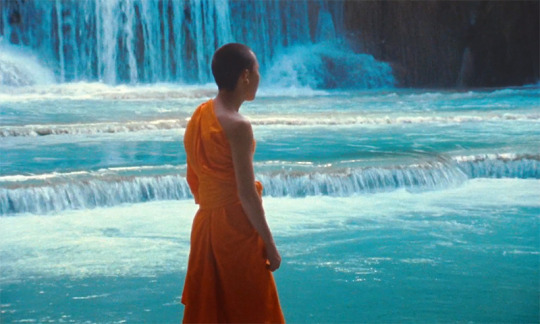
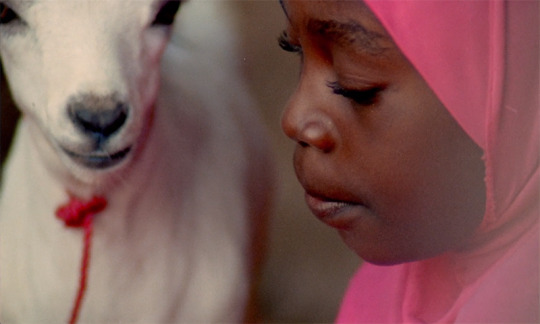

SAMSARA (Lois Patiño, 2023)
#samsara#lois patiño#amid keomany#toumor xiong#simone milavanh#mariam vuaa mtego#juwairiya idrisa uwesu#film#cine
22 notes
·
View notes
Photo
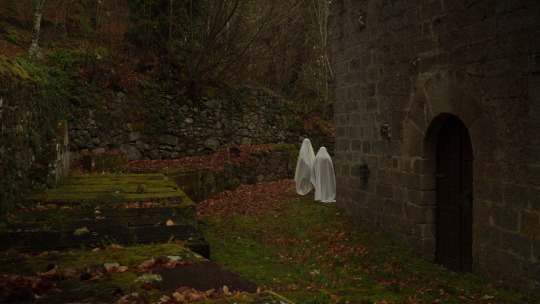



Red Moon Tide (2020), dir. Lois Patiño
#red moon tide#lúa vermella#lois patiño#spanish cinema#*#film stills#its so beautifully shot some of the transitions were insane
8 notes
·
View notes
Text
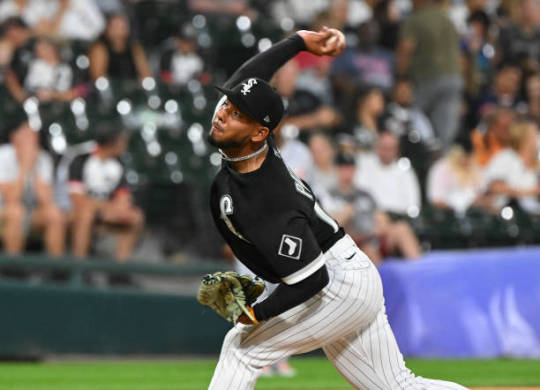
Luis Patiño makes his White Sox debut.
4.0IP 5H 1ER 3BB 4K
2 notes
·
View notes

